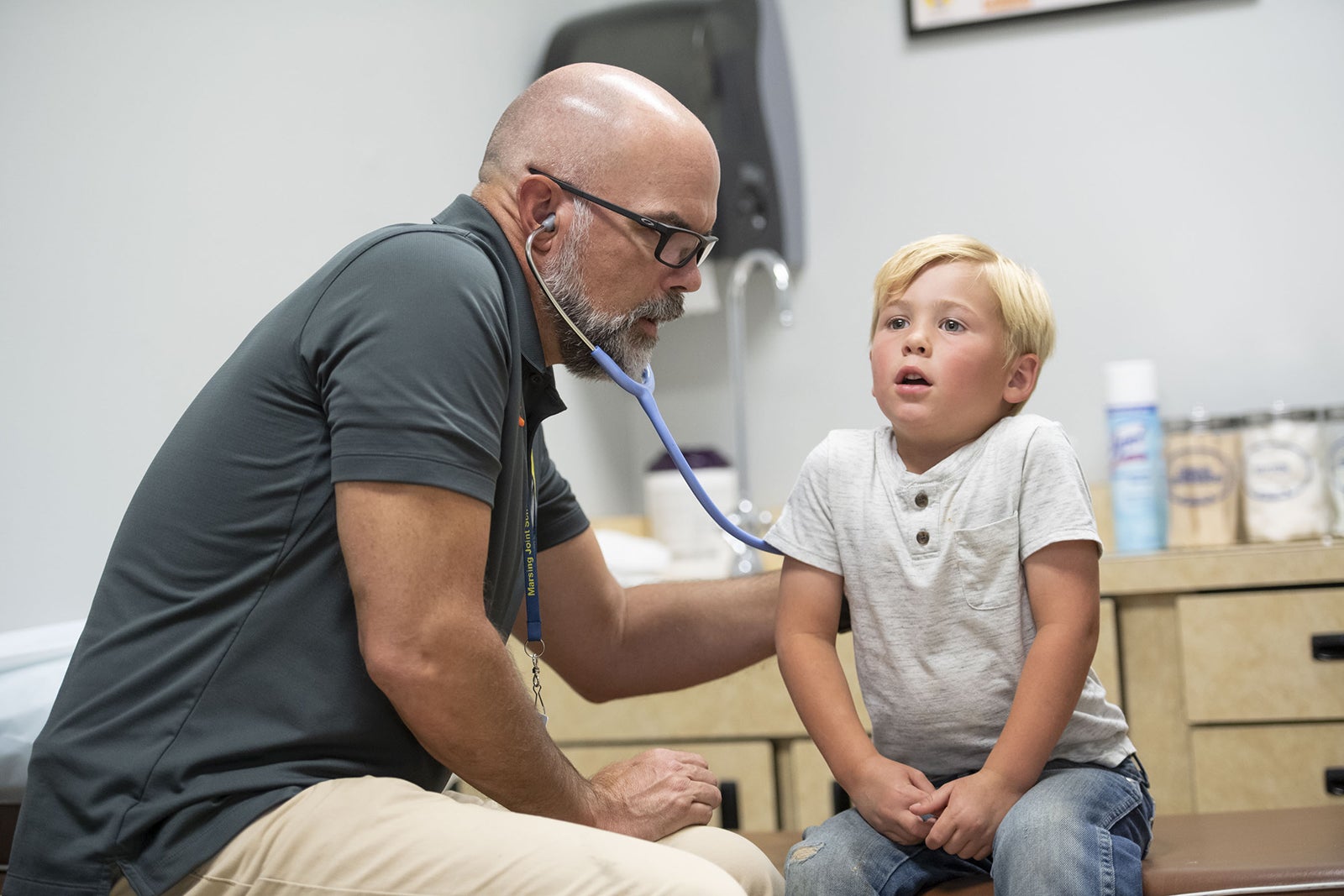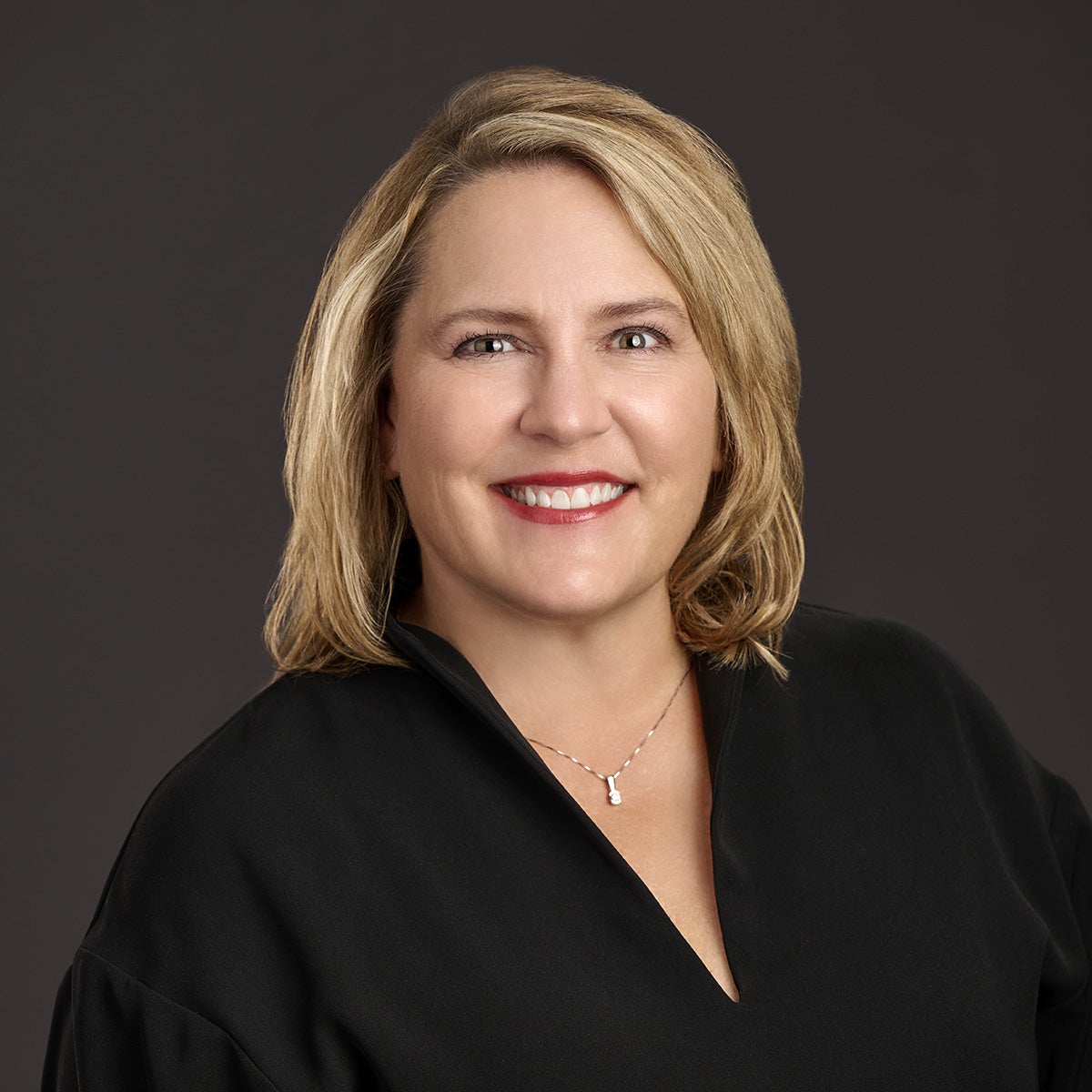
Marsing, an Idaho community of 1,434 residents, sits beside the winding Snake River in Owyhee County. The town is not far from wine country, and is just a short drive from Boise. But Marsing’s character, with its farms and open vistas beneath Lizard Butte, remains distinctly rural.
Studies have shown that rural residents, including children, are at a higher risk for many ailments. One-third of Idaho’s population lives in rural areas. Boise State’s School of Nursing has a long history of serving rural communities like Marsing. The school has hosted health fairs, fitness activities, mental health screenings, and health education programs in many towns.
In January 2021, Boise State partnered with the Marsing School District and Southwest District Health to open a free, school-based health clinic. The clinic is part of The Hub, an octagon-shaped building near the district’s elementary, middle and high schools that houses a preschool program, Head Start, a learning center, and a food and clothing pantry.
Max Veltman, a licensed pediatric nurse practitioner and associate professor in the School of Nursing, collaborates with a registered nurse from Southwest District Health to staff the clinic two days a week. Services include minor first aid, sports physicals, wellness screenings, and referrals for care for more serious conditions, including mental health issues. Veltman, who specializes in care for children aged 17 and younger, also provides health education for families on topics like first aid, asthma treatment — even lice screening.
“I want to teach parents how to raise healthy children, because parents are the key to a healthy family,” Veltman said. “If we devote more resources to families, we can reinvent the field of health care.”
Care at the clinic is available to any student’s family members, Veltman added. The clinic also serves adults — mostly school staffers — who come for health advice or health assessments like blood pressure or glucose checks.
Eliminating barriers
The accessibility of school-based health care can increase the number of families that receive good guidance and care for children with health and behavioral health challenges, said Joelle Powers, associate dean in the College of Health Sciences.
Before coming to Boise State, Powers spent seven years implementing a program that provided in-school behavioral health care to rural and underserved communities in North Carolina.
“Bringing services to the kids in their schools eliminated barriers to care,” Powers said. “A lot of our families did not have transportation, or the money or resources for public transit, so they couldn’t get to a clinic or agency. It also opened lines of communication with school and program staff, because these clients were more comfortable in an environment they already knew.”
The clinic at The Hub is serving a similarly vital need, said Norm Stewart, superintendent of the Marsing School District. Other than Marsing’s Terry Reilly Clinic, the nearest health services are miles away in Homedale, Nampa, or Caldwell. About 65% of Marsing’s students are eligible for free or reduced lunch, one indicator of financial struggles.
“School is a central point for families in this community,” Stewart said.
Between January and May of 2021 — while open just two days a week — the clinic served 60 patients. The clinic also helps Boise State nursing students, who can complete required clinical hours at the site.
Become a donor to support the School of Nursing.
Serving in our communities
“Working with rural communities as a Boise State nursing student has opened my eyes to the varying needs of the population throughout the state and even within one small school district. It shows the challenge that community health nurses have and I’m honored to try and reach goals and meet the needs of those students.”
— Angela Tracy, nursing student and scholarship recipient from Boise, Idaho
Inspired? Let's Chat!
-

Heather A. Jauregui, MSEd
Senior Director of Development